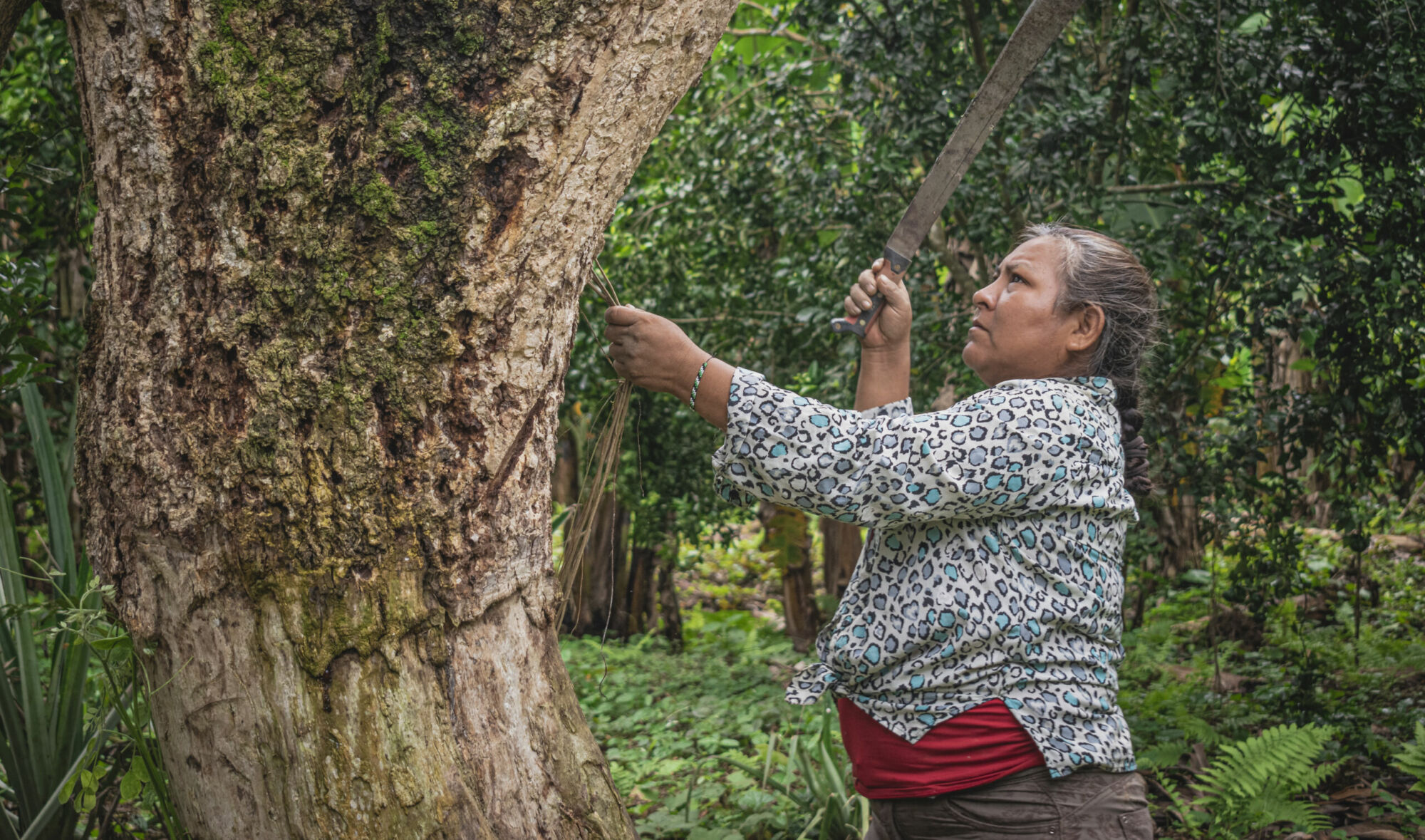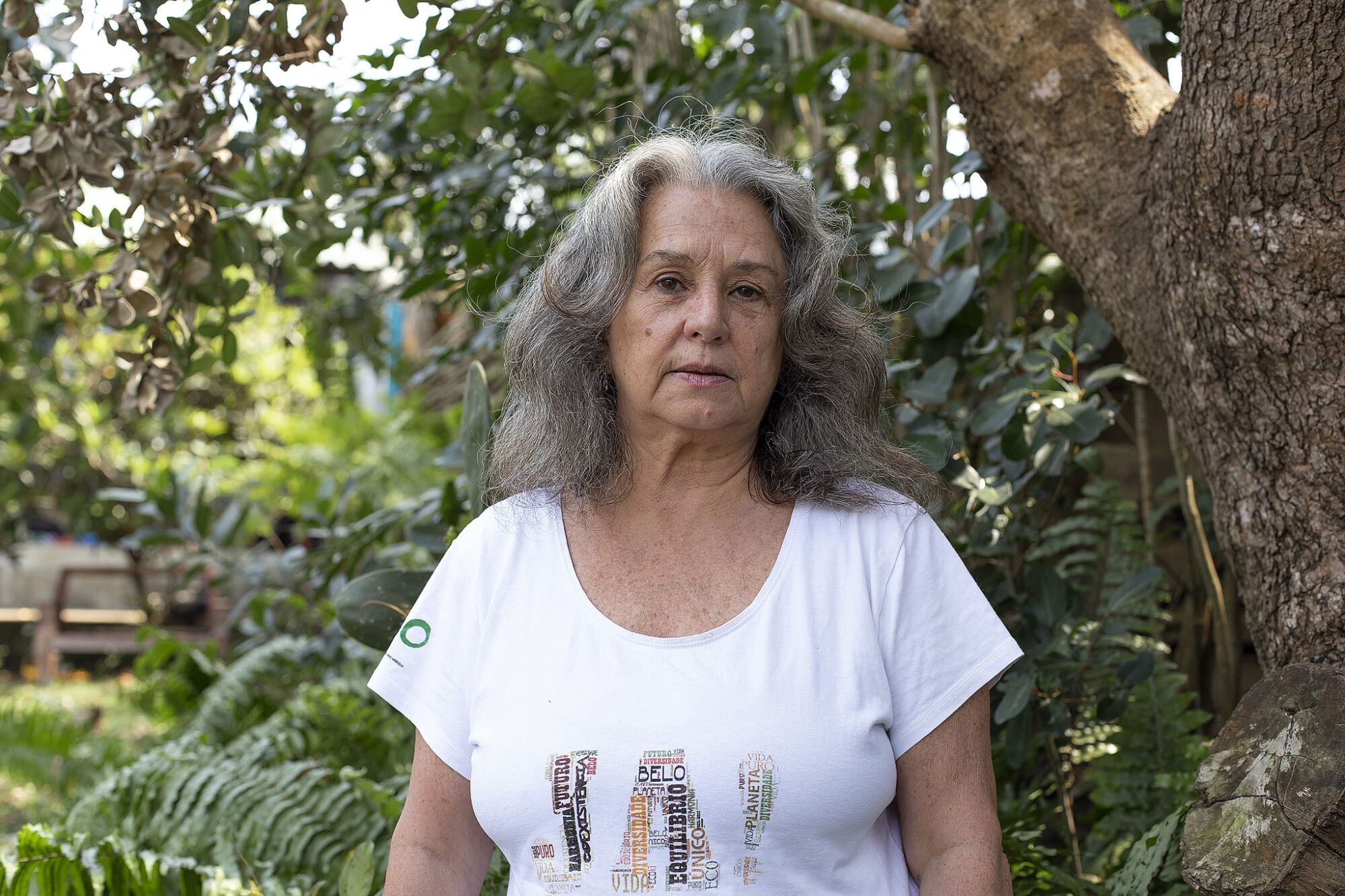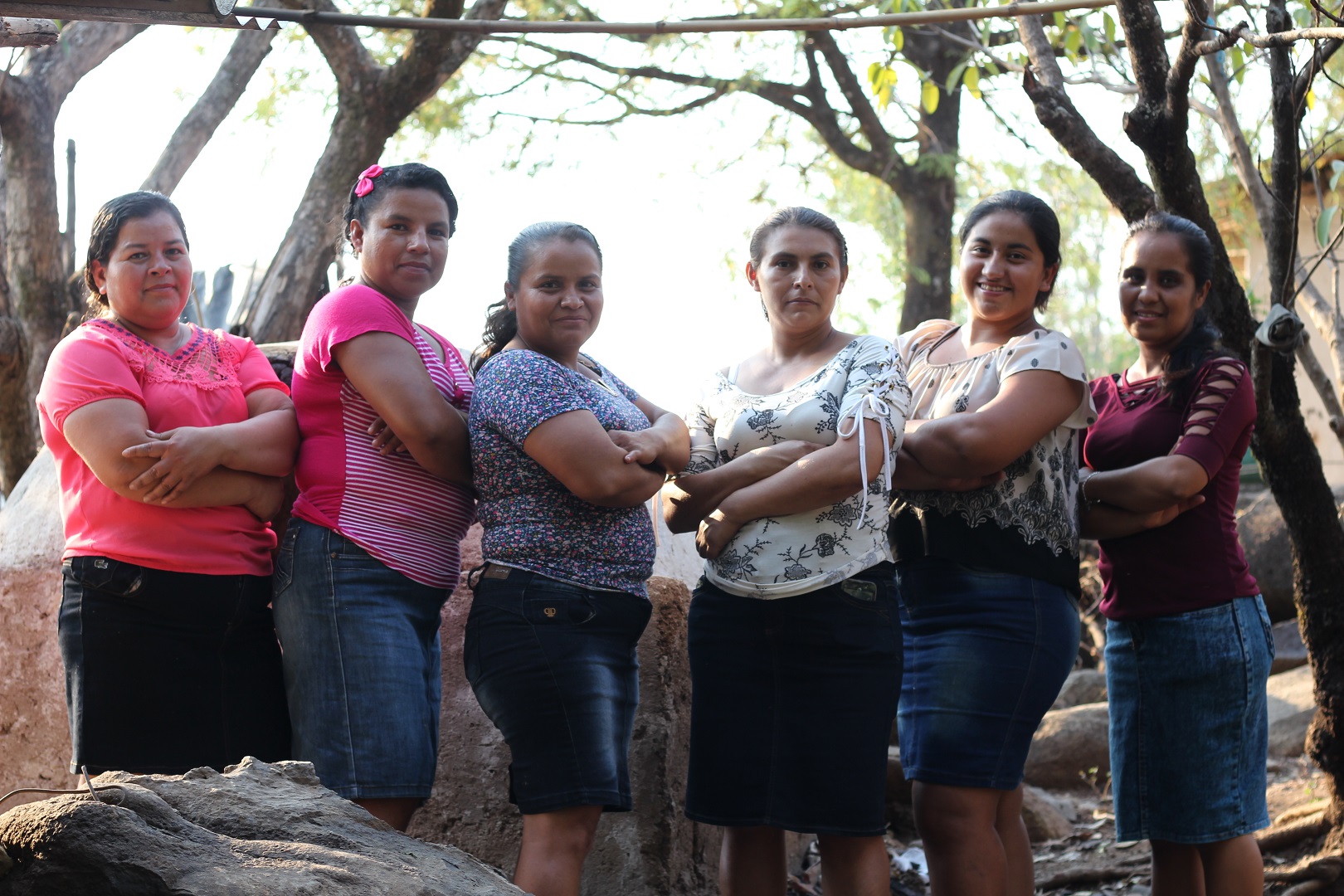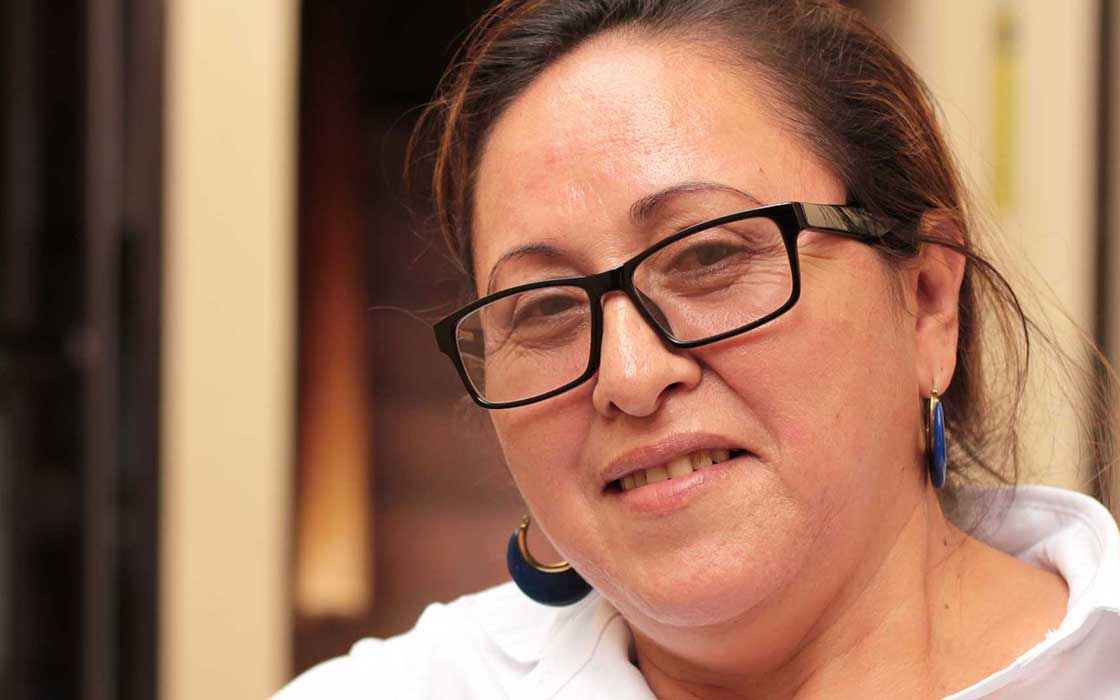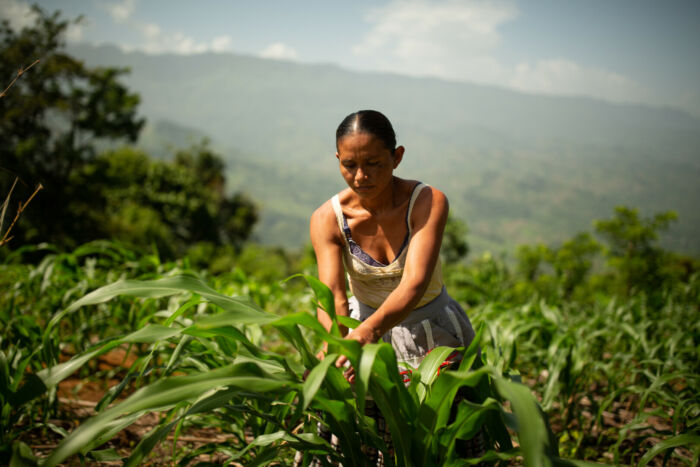Wilma Mendoza reflects on how much of her life she has spent fighting for land rights and the rights of indigenous people. Now 46, she is chair of CNAMIB (Confederación Nacional de Mujeres Indígenas de Bolivia), a national indigenous people’s organisation that works with women’s rights issues for the various groups of indigenous peoples in Bolivia.
Our land is everything to us, it is our life. We are nobody without our soil.
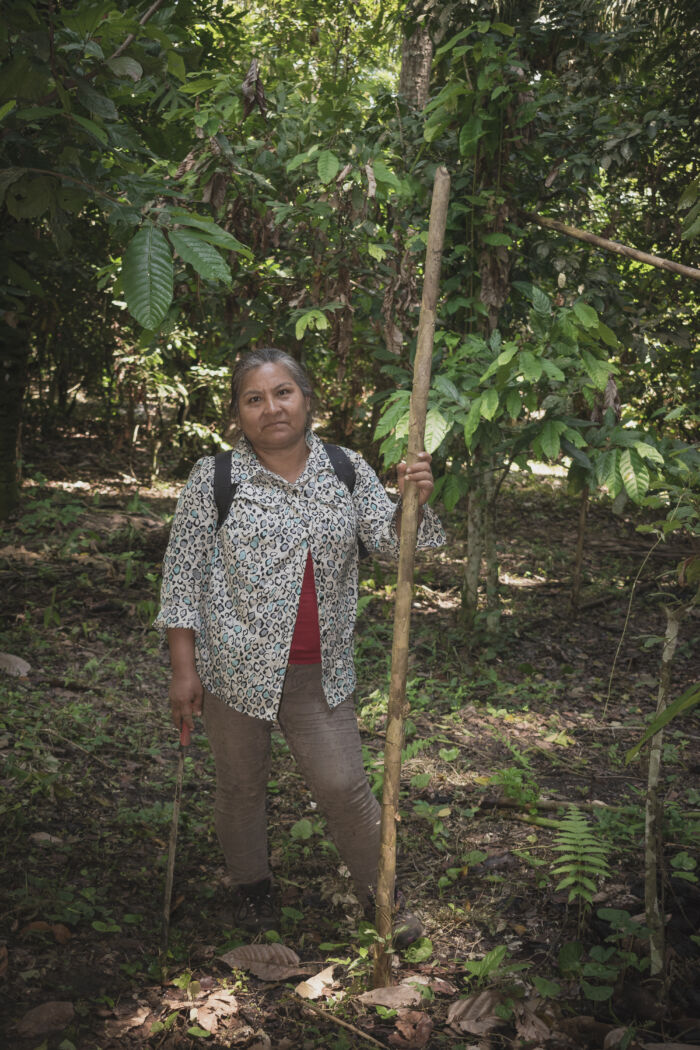
Working to defend the rights of indigenous women
But her story begins far earlier than that. Wilma was born in the 1970s into a Mosetén family — an indigenous people from the Bolivian lowlands — who were farmers. Shortly after her 17th birthday she moved to the city, La Paz, to study agronomy. During this time she also developed an interest in politics, and she began getting involved in student protests and union issues. After seven years in La Paz, Wilma felt it was time to return to her village, and ever since then she has worked to defend indigenous peoples’ territories and the rights of indigenous women – a task that now feels more urgent than ever.
“We are very worried about the mining policy that’s being permitted on our territories, under the slogan of developing the country, and how indigenous peoples’ land can then simply be confiscated,” says Wilma.
Exploitation of natural resources problem in whole Latin America
Extraction projects are not just a problem in Bolivia, but throughout Latin America. Mining and other exploitation of natural resources is leading, among other things, to entire communities being forced off their historical lands, to the surrounding environment like rivers and watercourses being polluted, and to the decimation of biodiversity. And for the people who, like Wilma, oppose these projects, the consequences are often severe.
“Being a female leader of an indigenous people out here in the territories is hard. We’re subjected to violence all the time. Not just from the mining companies and the authorities, but also from many of the local male leaders of indigenous peoples,” says Wilma.
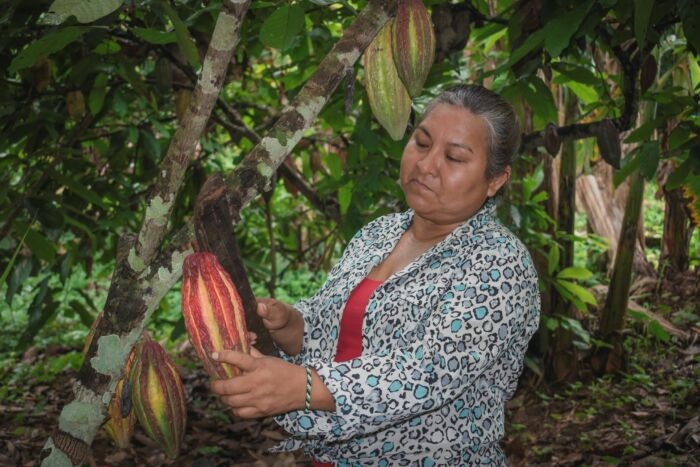
According to Wilma, local male leaders of indigenous peoples often join with the very people carrying out the extraction projects, which leads to internal conflicts in the local communities. This in turn leads to further harassment, threats and other violent action, and particularly hits the women land and environmental defenders. “It’s a way of scaring and silencing us women indigenous leaders, so that we won’t carry on exposing what’s going on in our territories. And unfortunately, a lot of people let themselves be silenced. Several of my role models have said they choose to protect their lives, and that they must think about their children.”
But Wilma herself says she is not prepared to give up. There is too strong an existential link to the land. “Our land is everything to us, it is our life. We are nobody without our soil.”
